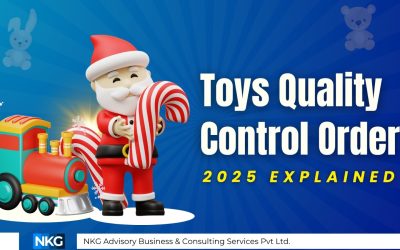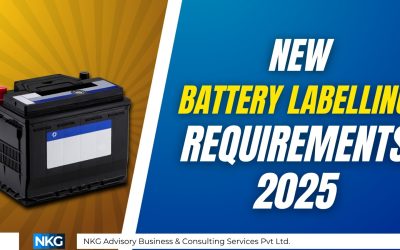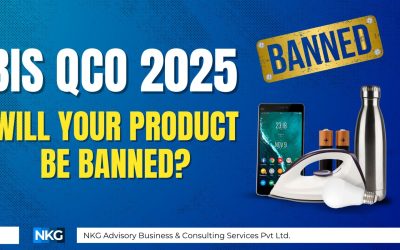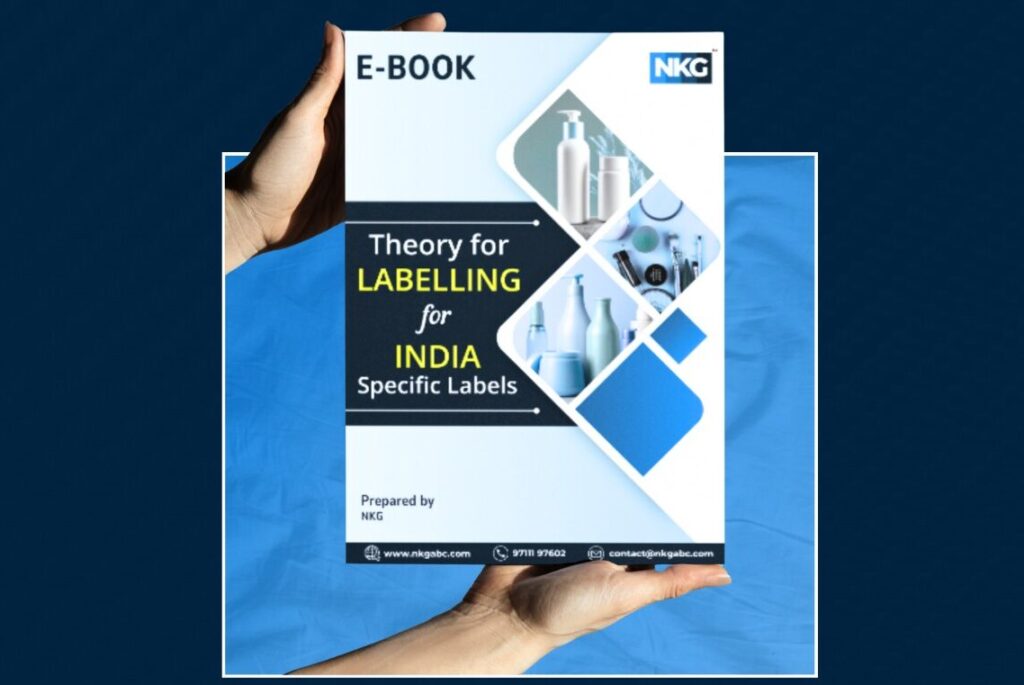1. Overview of Plastic Waste Management Rules
Plastics was always an essential part of our lives; due to its chemical and physical properties, it was always a commercial success. But with the change in time and high demand, the management of plastic has become more stressful after its usage. It leaves a very high amount of waste because, on average, it takes one thousand years to decompose the plastic completely. The leftover plastic waste has not only become a threat to our environment but has now started affecting people’s health. That’s why the Indian Government took the initiative to manage plastic waste. In 2011, The Plastic Waste (Management and Handling) Rules 2011, which included plastic waste management, addressed the issue of managing plastic waste through scientific methods. To replace the outdated Plastic Waste (Management and Handling) Rules from 2011, the government has announced the Plastic Waste Management Rules 2016. An approach to the policy known as EPR, or Extended Producer Responsibility, aims to hold producers accountable for the end-of-life handling of their products. This idea calls for producers and manufacturers of plastic goods to be responsible for managing their products’ end-of-life. The Plastic Waste Management Rules, 2016, implemented by the Central Pollution Control Board (CPCB), apply to all businesses that manufacture, import, or sell plastic products in India. The EPR program aims to lessen plastic waste’s harmful environmental effects while advancing ethical waste disposal methods. Companies are required to register with the CPCB, implement a plastic waste management plan, pay a registration fee, and use any services the CPCB provides as part of the EPR scheme. Penalties and fines may apply if the rules are broken.
In the article below, NKG will give an overview of Plastic waste management rules.
2. Aim of Plastic waste management 2016
- To make collecting and recycling plastic waste effortless, mandate a minimum thickness of 50 microns for plastic sheets, and the minimum thickness of plastic carry bags increased from 40 to 50 microns.
- Extend the applicability jurisdiction beyond the municipal area to include rural areas considering the prevalence of plastic there as well.
- Adding the obligations of producers and generators to manage plastic waste and introducing a producer/brand owner collection back system for plastic waste per the extended producer’s responsibility.
- To start mandating the pre-registration of those who make, import, and sell plastic carry bags and multi-layered packaging to collect fees for managing plastic waste.
- To give waste generators more responsibility, such as paying user fees as set forth by the local authority and collecting and turning over waste on behalf of institutional generators and event organizers; it helps to promote the use of plastic waste for other activities, such as road construction in accordance with Indian Road Congress guidelines; or energy recovery, waste to oil, etc., addressing the problem of waste disposal along with for profitable options.
- To date, no eco-friendly product has been discovered to replace plastic in all applications completely. It is undesirable and impractical to impose a nationwide ban on the use of plastic due to the lack of a suitable alternative. The real challenge is to upgrade systems for managing plastic waste.
3. Responsible Entities
The following entities given below shall be covered under the Extended Producer Responsibility obligations who are responsible for producing waste and how to manage it. It addresses the issue of scientific plastic waste management, namely: –
- Producer (P) of plastic packaging: The responsibility of the producers of plastic packaging is to ensure that the design and manufacturing of their product are carried out in such a way that minimizes the waste and negative impact on the environment. They must have a proper place to dispose of and recycle the product.
- Importer (I) of all imported plastic packaging and/or plastic packaging of imported products: The responsibility of the importers is that the products they are importing must meet the relevant EPR regulations and standards and should be disposed of or recycled in a proper place at the end of their life cycle.
- Brand Owners (BO) includes online platforms/marketplaces and supermarkets/retail chains other than those which are micro and small enterprises as per the criteria of Ministry of Micro, Small and Medium Enterprises, Government of India: The responsibility of the Brand Owners is to ensure that their branding and marketing efforts reflect the impact they will have on the environment. They should be honest with the consumers and work with producers and importers to implement the EPR plans effectively.
- Plastic Waste Processors: “Plastic Waste Processors” refers to recyclers and organizations engaged in industrial composting, waste-to-energy, and waste-to-oil conversion processes. The plastic waste is melted and compressed by plastic waste processors into hygienic discs suitable for long-term storage. Clean plastic waste, waste containing food, and other ship waste that cannot be processed in the standard solid waste stream are processed in plastic waste processors.
4. Responsibilities of PIBOs
PIBO is responsible to
1. Register at EPR Portal
2. Submit their Action plan.
3. Fulfill obligations for:
- Recycling
- Use of Recycled content
- Reuse
- End-of-life disposal
- Optional engagement in the collection and recovery of the plastics
- Submit annual returns.
- Provide proof of certificates (Plastic credits)
To reach their goal, PIBOs can work independently with PROs (Producer Responsibility Organizations) or other organizations, but the reporting and accountability for fulfilling those obligations rest solely with the PIBO.
5. Coverage of Extended Producer Responsibility
a) The following plastic packaging categories are covered under Extended Producer Responsibility:
S.No. | Category | Description |
1. | Category I | Rigid plastic packaging |
2. | Category II | Plastic sheets and covers made of plastic sheets, carry bags, plastic sachets, or pouches are examples of flexible plastic packaging that can be single-layer or multilayer (more than one layer with several types of plastic). |
3. | Category III | Packaging is made of several layers of plastic, including at least one layer of plastic and one layer of another material. |
4. | Category IV | Packaging and carry bags made of compostable plastics use plastic sheets. |
b) The activities and responsibilities of the Extended Producer Responsibility are covered with respect to plastic packaging in the guidelines, namely:
(i) Reuse (use again); (ii) Recycling; (iii) Use of recycled plastic content; (iv) End-of-life disposal.
6. Documentation
- PAN, GST, CIN,
- IEC (for importer) of the Company
- Aadhar / PAN of Authorized person
- District industrial central (DIC) registration (if the unit is registered with DIC)
- Process flow diagrams (for producers & PWPs only)
- Consents issued by SPCB/PCC (if the unit has a production facility)
- Scanned copies of signatures of authorized persons.
- Covering letter
- Geo-tagged images of the production area, goods dispatch area, raw material storage area, and plant machinery (in the case of PWPs only).
- Documents regarding any other information that the unit wishes to provide.
7. Fees
PIBOs application fees for EPR registration:
Plastic waste management (TPA) | Application Fees |
< 1000 | 10,000 |
1000-10,000 | 20,000 |
>10,000 | 50,000 |
PIBOs application fees for EPR registration:
Production capacity slab (TPA) | Fees |
<200 | 5000 |
200-2000 | 20,000 |
>2000 | 50,000 |
8. Validity of the EPR license
New registration – Valid for one year
Renewed registration – Valid for three years
Conclusion: In the last five years, plastic consumption rose in India at a CAGR of 9.7% to 14 MT during 2016-17 to 20 million tons in 2019-20, according to the reports released in the national capital. Only 30% of waste in India is recycled, leading to an increase in plastic waste, which either ends in landfill or water bodies, causing harm to the environment and human health. Thus, to manage the waste, the Government started the Plastic waste management rules to guide the producers, importers, and business owners on how to deal with Plastic waste. With the increased use of plastic, the Government is taking strict actions, and people who fail to comply will face heavy penalties and fines. If the plastic product falls under the umbrella of EPR, the plastic producer must register through the CPCB’s centralized online EPR portal. Manufacturers, importers, owners of trademarks, and processors of plastic waste for plastic packaging must have a plastic waste management registration certificate (EPR Registration) from the CPCB. PIBOs and PWPs must obtain EPR registration for plastic waste management from CPCB to conduct business. Applying for plastic waste management registration can be done through the central EPR portal of the CPCB.







